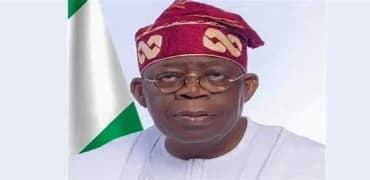Court of Appeal Upholds IPOB’s Terrorist Status – What This Means for Nnamdi Kanu
Court of Appeal Upholds IPOB’s Terrorist Status – What This Means for Nnamdi Kanu
By Achimi Muktar
The Court of Appeal in Abuja has delivered a landmark judgment, affirming the proscription of the Indigenous People of Biafra (IPOB) as a terrorist organization—a ruling that cements the Nigerian government’s stance on the controversial separatist group.
This decision, handed down on Thursday by a three-member panel led by Justice Hamma Barka, upheld an earlier ruling by the Federal High Court in Abuja, which formally outlawed IPOB.
In its unanimous ruling, the Appeal Court dismissed IPOB’s legal challenge and ruled that the Nigerian government acted within the law when it proscribed the group in 2017.
"The federal government lawfully proscribed IPOB, whose activities threaten national security and the country’s continued existence," Justice Barka declared.
This ruling overturns an earlier October 2023 decision by a State High Court in Enugu, which had nullified IPOB’s proscription and declared it a violation of fundamental human rights.
IPOB, led by Nnamdi Kanu, has been at the forefront of the agitation for an independent Biafra nation, seeking to carve it out from the South-East and parts of South-South Nigeria.
The Nigerian government, under President Muhammadu Buhari, officially proscribed IPOB in September 2017, after a Federal High Court ruling by Justice Abdul Kafarati tagged it a terrorist organization.
This decision was backed by the South-East Governors’ Forum, which also announced IPOB’s proscription in the region.
Despite multiple legal challenges spanning several years, IPOB and its legal team failed to overturn the proscription—until the surprising October 2023 ruling in Enugu, which has now been nullified by the Court of Appeal.
With the Appeal Court’s ruling, IPOB remains a proscribed terrorist organization, making its activities in Nigeria illegal. However, the group still has one legal lifeline—an appeal to the Supreme Court.
It remains to be seen whether Nnamdi Kanu and IPOB’s legal team will escalate the case to the highest court in the land or adopt a different strategy.
For now, the Nigerian government’s position on IPOB has been legally reinforced, further complicating the separatist movement’s quest for recognition.
With the Appeal Court’s ruling solidifying IPOB’s terrorist designation, the group faces increased legal restrictions, crackdowns, and potential arrests of its members.
Will this ruling weaken the movement, or will it fuel a renewed push for self-determination through other means? One thing is clear—the legal and political battle over Biafra’s future is far from over.


















